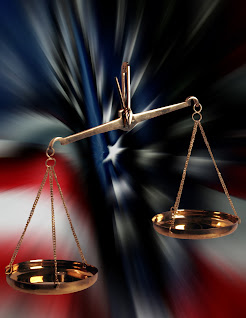WLAD Magic: Front & Back Pay Without Proving Unlawful Discharge
The relevant WLAD provisions are as follows:
It is an unfair practice for any employer:
…
(2) To DISCHARGE or bar any person from employment because of age, sex, marital status, sexual orientation, race, creed, color, national origin, honorably discharged veteran or military status, or the presence of any sensory, mental, or physical disability or the use of a trained dog guide or service animal by a person with a disability.
(3) To DISCRIMINATE against any person in compensation or in other terms or conditions of employment because of age, sex, marital status, sexual orientation, race, creed, color, national origin, honorably discharged veteran or military status, or the presence of any sensory, mental, or physical disability or the use of a trained dog guide or service animal by a person with a disability: PROVIDED, That it shall not be an unfair practice for an employer to segregate washrooms or locker facilities on the basis of sex, or to base other terms and conditions of employment on the sex of employees where the commission by regulation or ruling in a particular instance has found the employment practice to be appropriate for the practical realization of equality of opportunity between the sexes.
RCW 49.60.230 (hereinafter, "statute") (emphasis added). Pursuant to these unfair practices, "[a] wrongful act of discrimination under the statute does not necessarily lead to discharge of the employee, but it is possible that discharge or constructive discharge can result from such an act." Martini v. The Boeing Company, 137 Wn.2d 357, 366 (Wash. 1999).DISTINCTION BETWEEN DISCRIMINATION & DISCHARGE
Discharge and discrimination are separate causes of action. "[S]ince ... [WLAD] ... deals separately with unlawful discrimination against an employee and unlawful discharge of an employee, it is clear that each of these acts amounts to a different violation of the law against discrimination and gives rise to a separate cause of action under the statute. This would be true even if the claim for discrimination and the claim for discharge arose from the employer's same act." Id. at 366 (emphasis added).
THE REMEDIES PROVISION
Any person deeming himself or herself injured by any act in violation of this chapter shall have a civil action in a court of competent jurisdiction to enjoin further violations, or to recover the actual damages sustained by the person, or both, together with the cost of suit including reasonable attorneys' fees or any other appropriate remedy authorized by this chapter or the United States Civil Rights Act of 1964...."
Id. at 366-67 (citing RCW 49.60.030(2)) (emphasis added).WLAD "does not in any way limit the type of compensation that can be claimed for discrimination violating RCW 49.60.180(3) [(unlawful discrimination)], but the usual rules which govern the elements of damage for which compensation may be awarded apply." Id. at 368 (internal citations omitted).
The trial court granted partial summary judgment in favor of Boeing: it dismissed his separate constructive discharge claim. The jury awarded Martini the following damages for Boeing's disability discrimination and entered judgment on the jury verdict: lost earnings ($205,356), lost future earnings ($480,932), pain, suffering, and emotional distress ($75,000), and past and future medical expenses ($15,000).
Boeing appealed arguing, inter alia, that because Martini was not constructively discharged, he was not entitled to seek damages for front and back pay. But the Court of Appeals rejected Boeing's argument and affirmed the award of front and back pay. Boeing then petitioned the Washington State Supreme Court and the petition was granted.
-Supreme Court Finds Back Pay Okay
The WA Supreme Court affirmed the Court of Appeals, finding, inter alia, that Washington case law "supports the proposition that back pay may be awarded for a discriminatory act in violation of RCW 49.60.180(3) [(unlawful discrimination)] even if there is no finding of constructive discharge, so long as the damages were proximately caused by the wrongful act." Id. at 378. (hyperlink and emphasis added).
-Supreme Court Finds Front Pay Okay
The Court also implicitly determined that "a plaintiff with a successful discrimination claim under RCW 49.60.180(3) may recover front ... pay as part of his damages, if he establishes the same was proximately caused by an unlawful discrimination." Martini 137 Wn.2d at 359-60. It is not essential that the plaintiff prove constructive discharge in a separate cause of action. Id.
CONCLUSION
WLAD permits recovery of front and back pay for a successful discrimination claim (absent proof of unlawful actual or constructive discharge -- RCW 49.60.230(2)) when such damages are proximately caused by unlawful discrimination.









